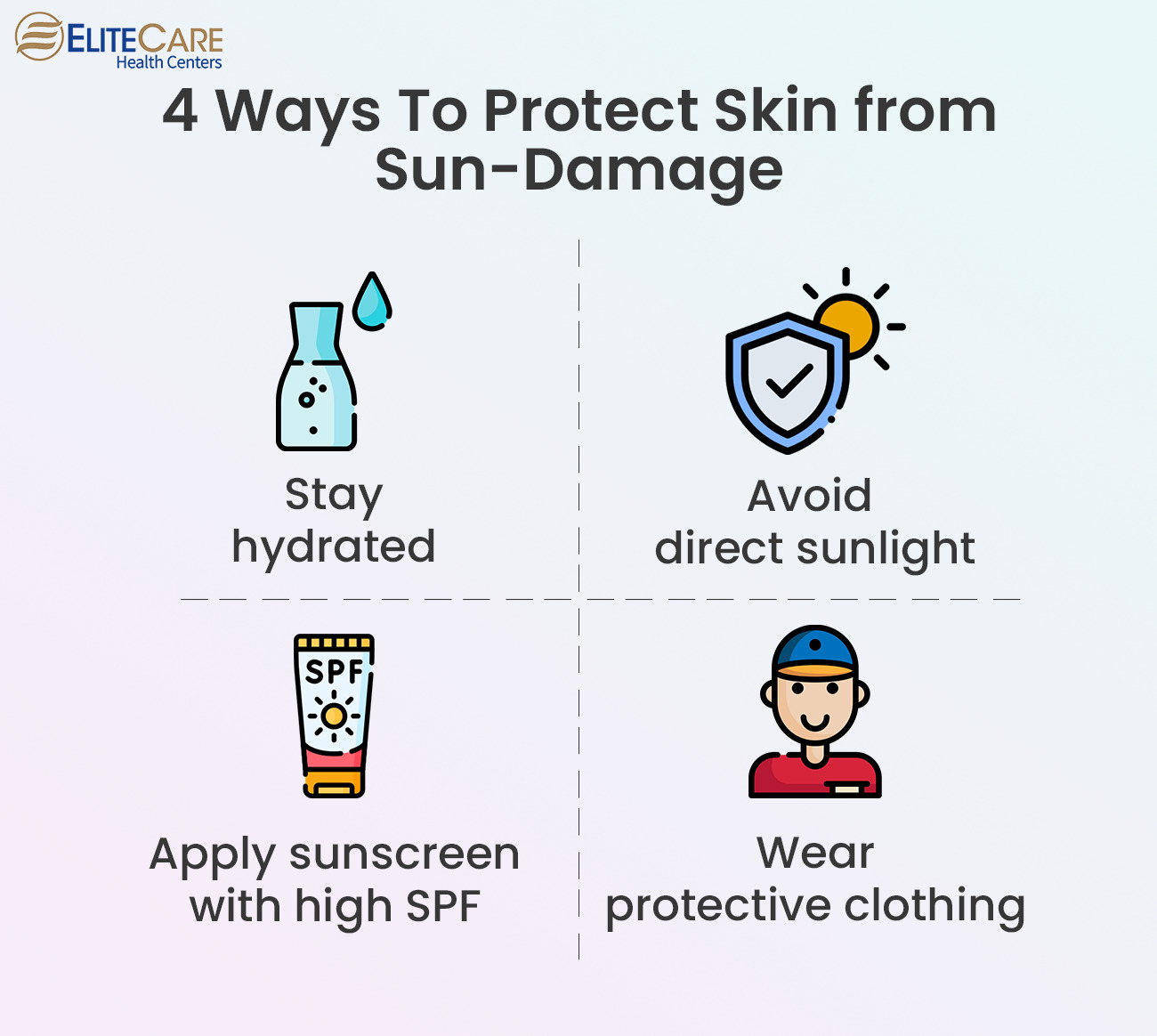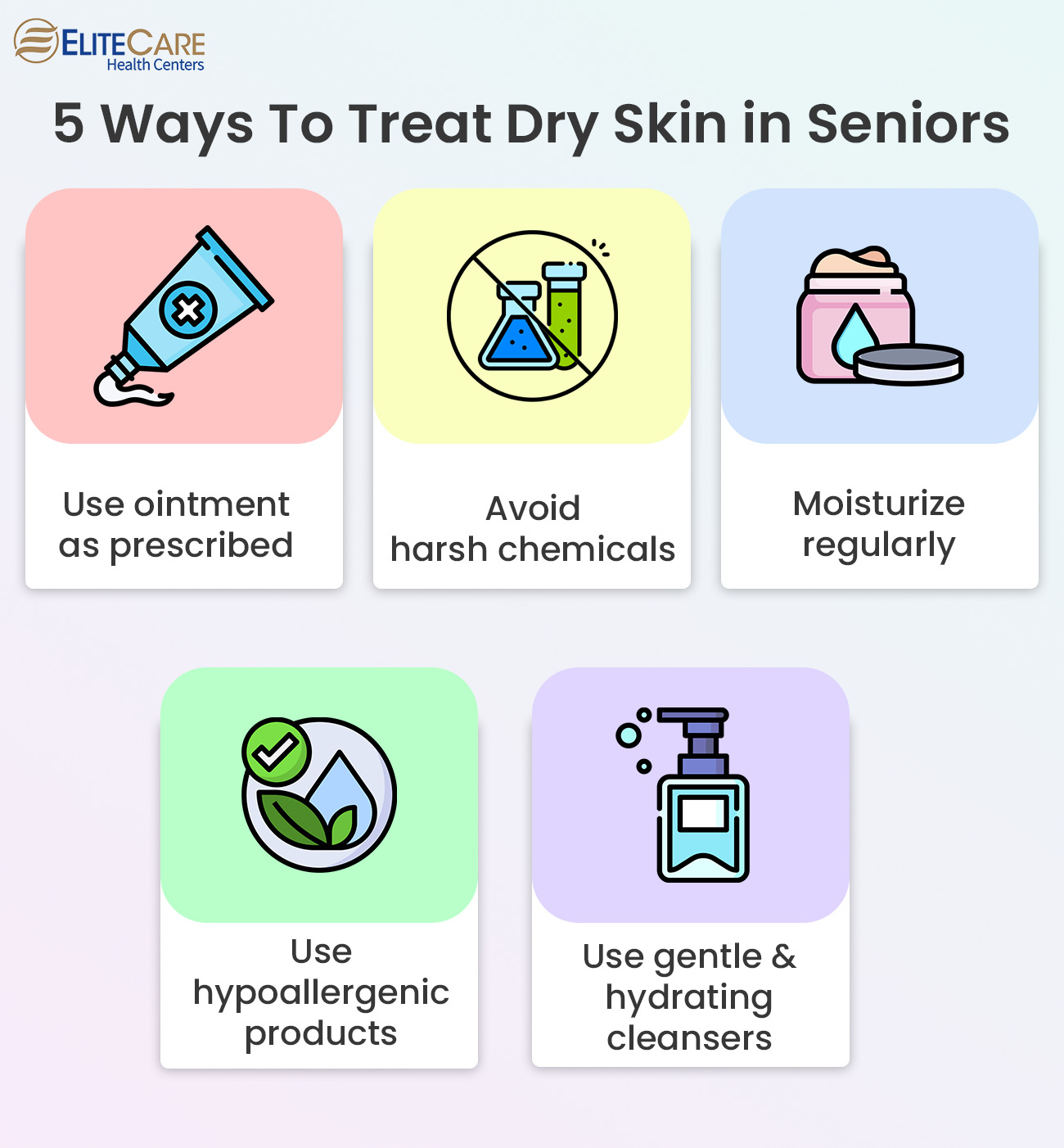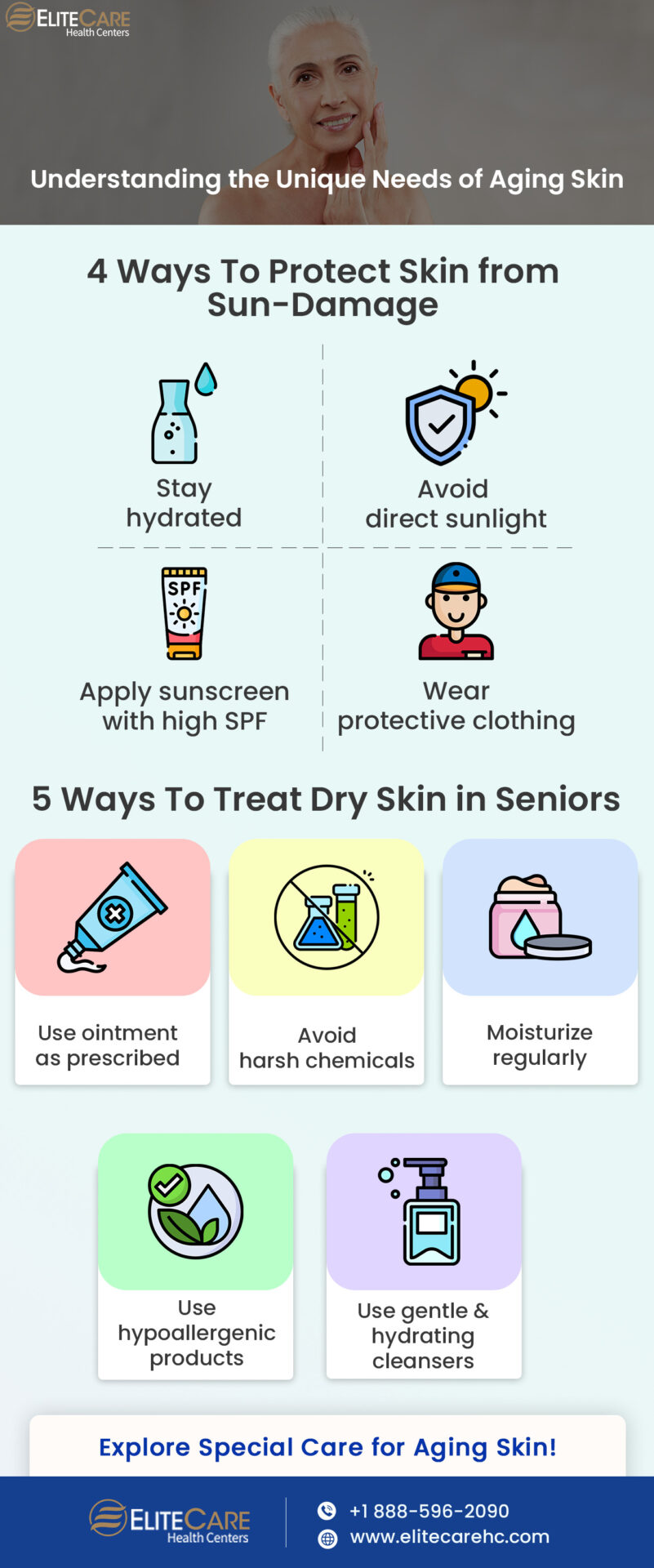
Preventive care plays a crucial role in maintaining the health and appearance of aging skin. With age, skin becomes more vulnerable to various challenges, such as reduced elasticity, thinning, dryness, and increased susceptibility to damage. These factors make proactive skincare essential. This blog post will explore the best skin care practices for aging skin, emphasizing the significance of maintaining healthy skin in seniors. By implementing preventive care strategies, seniors can promote skin health, enhance their overall well-being, and minimize the effects of aging.
Understanding the Aging Process
The natural aging process is an inevitable part of life that affects all aspects of our bodies, including our skin. As we age, our skin undergoes various changes that can impact its health, appearance, and functionality. Here are some key points to understand about the aging process and its effects on the skin:
- Reduced Elasticity: Elasticity refers to the skin’s ability to stretch and bounce back to its original shape. With age, the production of elastin, a protein responsible for maintaining skin elasticity, decreases. As a result, the skin becomes less firm and starts to sag and wrinkle.
- Thinning of the Skin: The epidermis becomes thinner with age. This thinning is due to a decrease in the production of collagen, a protein that provides structural support to the skin. Thinner skin is more prone to bruising, tearing, and other injuries.
- Dryness: The sebaceous glands produce the skin’s natural oils, which become less active over time. As a result, the skin loses moisture more easily, leading to dryness, flakiness, and a rough texture.
- Loss of Fat and Volume: Aging also involves a loss of subcutaneous fat, the fat layer beneath the skin’s surface. This loss of fat can lead to a hollow appearance, particularly in the cheeks and around the eyes. The reduction in fat also makes blood vessels beneath the skin more visible, contributing to a thinner and more fragile look.
The Significance of Sun Protection

To protect senior skin from sun damage, it is essential to:
- Apply a broad-spectrum sunscreen with a high SPF regularly.
- Seek shade and avoid direct sunlight during peak hours.
- Wear protective clothing, such as wide-brimmed hats, long sleeves, and sunglasses.
- Stay hydrated to maintain skin health and resilience.
Dryness and Irritation in Aging Skin
The skin’s barrier function weakens with age, making seniors more susceptible to dryness, irritation, and sensitivity. This occurs due to decreased natural oil production by the sebaceous glands, resulting in drier skin and a lack of moisture. Additionally, the impaired barrier function makes the skin more susceptible to the penetration of irritants and allergens, leading to heightened sensitivity, redness, and inflammation. Addressing these challenges requires targeted skincare approaches focusing on replenishing moisture, protecting the skin’s barrier, and minimizing exposure to potential irritants.

To address these challenges, seniors can:
- Use gentle, hydrating cleansers that do not strip away natural oils.
- Moisturize regularly with products formulated for mature skin
- Avoid harsh chemicals, fragrances, and excessive exfoliation
- Use hypoallergenic and fragrance-free skincare products to minimize the risk of irritation.
- Consider using topical creams or ointments a dermatologist prescribes for severe dryness or skin conditions.
Choose the Right Skincare Products
The right skincare products can make a world of difference for your skin. But with so many products on the market, it can take time to figure out where to start. The products that seniors should have in their skincare routine are as follows:
- Hydrating Serums: Serums containing hyaluronic acid or glycerin can boost hydration, promoting plumpness and reducing the appearance of fine lines and wrinkles.
- Retinoids: Retinoids, such as retinol or prescription-strength retinoids, can be beneficial for seniors as they help improve skin texture, stimulate collagen production, and reduce the signs of aging.
- Age-Defying Ingredients: Look for skincare products that contain antioxidants like vitamin C, green tea extract, or resveratrol. Antioxidants help protect the skin from free radicals, which can contribute to aging. Peptides and growth factors also stimulate collagen production and improve skin elasticity.
- Eye Creams: The delicate skin around the eyes tends to show signs of aging first. Choose a gentle, hydrating eye cream that targets dark circles, puffiness, and fine lines.
Incorporating antioxidants and anti-aging ingredients into a skincare regimen can help protect the skin from damage caused by free radicals. Remember, it’s important to consult with a dermatologist or senior care service professional or have an online doctor consultation to tailor a skincare routine for your skin’s needs. The health care clinic professionals can provide personalized recommendations based on your skin type, concerns, and underlying conditions.
Professional Help and Treatments
Seeking professional help is paramount in achieving the best skin care results for aging skin. Consider these aspects to make informed decisions:
1. Consult a dermatologist for personalized advice
Dermatologists can offer tailored advice based on skin type, concerns, and medical history. Schedule appointments at medical clinics, health care centers, or online doctor consultations to benefit from their expertise.
2. Popular treatments for senior skin
Dermatologists offer various effective treatments for aging skin. Popular options include chemical peels and laser therapy at healthcare clinics. These treatments help address wrinkles, age spots, and uneven skin tone. Non-invasive procedures also play a role in revitalizing mature skin. Micro-needling and radiofrequency therapy stimulate collagen production, promoting a youthful appearance.
With the best skin care approaches, preventive care, and guidance from primary care physicians and dermatologists, seniors can enhance their skin health and achieve a radiant and rejuvenated complexion. Feel free to schedule annual or routine physical exams to ensure overall well-being and receive personalized advice on the best skin care practices for aging skin.
The Bottom Line
The best skin care for aging skin requires preventive care, professional advice, and effective treatments. By understanding the unique needs of senior skin and adopting a targeted skincare routine, seniors can enjoy nourished, protected, and radiantly beautiful skin. EliteCare Health Center offers comprehensive care for seniors. Visit our health center if you’re dealing with any skin issues.
Remember, caring for your skin is an investment in your overall well-being, confidence, and quality of life.






